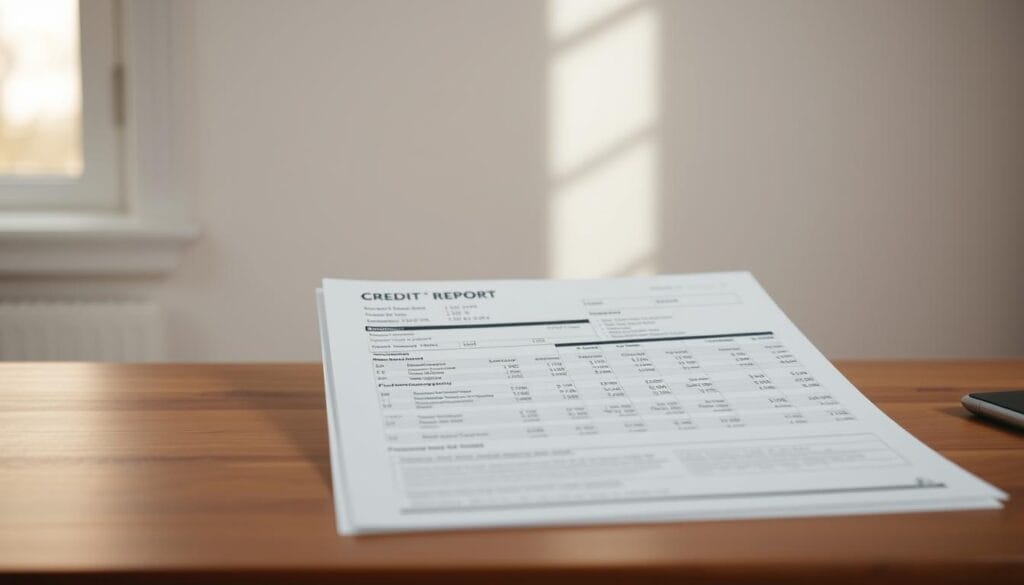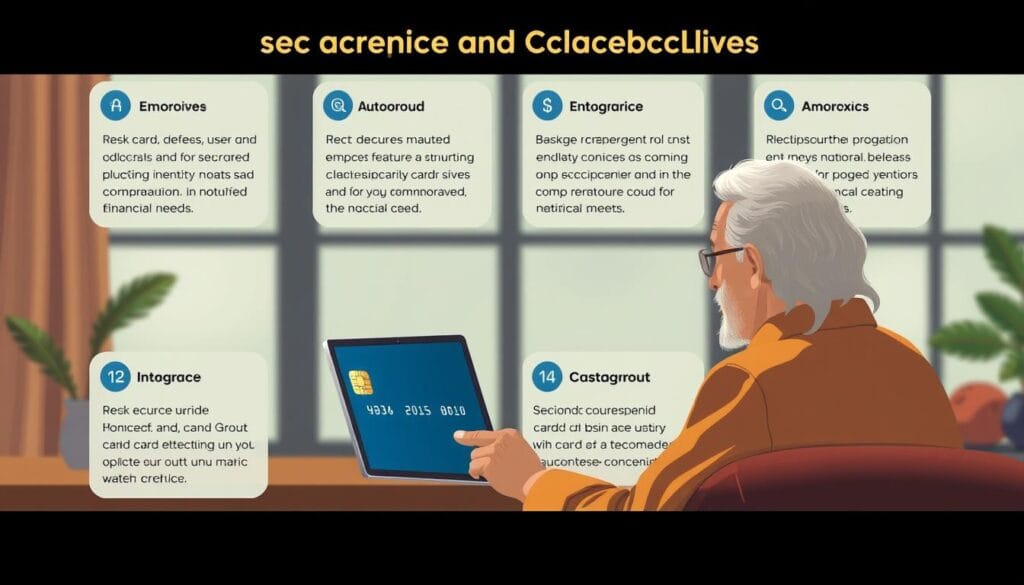Many seniors in the United States face significant challenges when it comes to managing their credit, often due to fixed incomes and unexpected health-related expenses. Repairing bad credit is not an overnight process; it requires patience, discipline, and a well-informed strategy. According to recent data, seniors are among the demographics most affected by credit issues, making it crucial for them to understand the credit report and the steps needed to improve their financial standing.
For seniors looking to rebuild their credit, the journey can be long and arduous. It involves not just correcting errors on their credit report but also adopting healthy financial habits. Those struggling with bad credit loans may find it particularly challenging to secure new lines of credit. However, with the right guidance and a clear understanding of the process, seniors can take control of their financial history and work towards a better financial future.
Key Takeaways
- Seniors face unique challenges in repairing their credit due to fixed incomes and potential health-related financial setbacks.
- Understanding the realistic timeframes for credit repair is essential for setting proper expectations.
- Credit repair is a gradual process that requires consistent effort and patience over several months or even years.
- Different credit issues require different amounts of time to resolve, from correcting reporting errors to addressing serious delinquencies.
- Seniors can benefit from tailored strategies and resources designed to help older adults rebuild their credit.
Understanding Credit Scores and Reports for Seniors

Understanding your credit score is crucial for seniors to manage their financial health effectively. Credit scores are three-digit numbers that represent your creditworthiness, derived from information in your credit reports. For seniors, maintaining a good credit score can be vital for securing loans, credit cards, and even apartments.
What Makes Up Your Credit Score
Your credit score is calculated based on several factors, including payment history, credit utilization, length of credit history, new credit inquiries, and credit mix. Payment history accounts for 35% of your score, making it the most significant factor. Ensuring timely payments can significantly improve your credit score over time. For more detailed tips on improving your credit score, you can visit AI-Driven Tips for Boosting Credit Scores.
How to Access Your Free Credit Reports
Seniors can access their free credit reports from the three major credit bureaus (Equifax, Experian, and TransUnion) weekly through AnnualCreditReport.com. This service is permanently available, and seniors can also request their reports by calling 1-877-322-8228. Additionally, through 2026, Equifax offers six free credit reports per year. Regularly checking these reports helps seniors identify potential errors or fraudulent activities that could negatively impact their credit scores.
- Verify all personal information for accuracy when reviewing your credit reports.
- Check account details and payment histories to ensure they are up-to-date.
- Monitor inquiries and new accounts to detect any suspicious activity.
Realistic Timeframes to Repair Bad Credit

Repairing bad credit requires patience and a clear understanding of the timeframes involved. The process can be broken down into several stages, each with its own timeline.
Short-Term Improvements (3-6 Months)
In the short term, seniors can start seeing improvements in their credit score within 3-6 months by making on-time payments and reducing debt. This initial phase is crucial in setting the stage for long-term credit recovery. By focusing on establishing a positive payment history, seniors can begin to see their credit scores improve.
Medium-Term Recovery (6-12 Months)
As seniors continue to make timely payments and manage their debt effectively, they can expect to see further improvements in their credit score over the next 6-12 months. During this period, the impact of past credit problems begins to diminish, and the credit score starts to reflect the positive changes. For those looking to secure a personal loan, understanding the best personal loan rates can be beneficial in making informed financial decisions.
Long-Term Credit Restoration (1-7 Years)
Long-term credit restoration is a process that can take anywhere from 1 to 7 years. During this time, negative information on the credit report gradually ages and eventually falls off, allowing seniors to achieve significant improvements in their credit score. The table below illustrates the typical timeframe for different types of negative information to remain on a credit report.
| Type of Negative Information | Timeframe on Credit Report |
|---|---|
| Late Payments | 7 years |
| Collections | 7 years |
| Chapter 7 Bankruptcies | 10 years |
| Chapter 13 Bankruptcies | 7 years |
By maintaining good credit habits over the long term, seniors can achieve significant improvements in their credit score, often seeing increases of 100+ points. As the negative information ages and eventually falls off the credit report, the positive credit history built over time becomes the dominant factor in determining the credit score.
First Steps: Identifying Credit Issues Specific to Seniors

As seniors embark on the journey to repair their credit, the first crucial step is identifying specific credit issues that may be hindering their financial health. This process begins with a thorough review of their credit reports to detect any inaccuracies or problems.
Common Credit Challenges for Older Adults
Seniors often face unique credit challenges, including medical billing errors, which are particularly prevalent among older adults. These errors can significantly impact credit scores if not addressed promptly. Other common issues include incorrect personal information, accounts not belonging to them, duplicate accounts, and outdated information.
According to a recent study, seniors are more likely to encounter medical billing errors on their credit reports. For instance, a senior might find that a medical bill has been sent to collections incorrectly or that the bill is listed multiple times. “Medical billing errors are a significant concern for seniors, as they can lead to unnecessary financial strain,” says a credit expert.
Checking for Errors on Your Credit Report
To identify errors, seniors should carefully review their credit reports from all three major credit reporting agencies. Disputing inaccurate or missing information is crucial, and this can be done by contacting both the credit reporting agency and the lender directly. Seniors will need to provide their name, address, and telephone number, as well as account numbers for any disputed accounts, and documents that prove their dispute.
For example, seniors can submit a dispute with one or all three major credit bureaus if an error is found. It’s also essential to maintain detailed records of all dispute communications, including dates, contact names, and confirmation numbers. As noted by a financial advisor,
“Successfully removing inaccurate negative information can result in immediate score improvements, making error identification one of the most time-efficient credit repair strategies.”
Seniors can check their credit reports and dispute errors by visiting credit report services that provide guidance on the dispute process.
Essential Strategies to Repair Bad Credit Over Time

Effective credit repair for seniors involves a multi-faceted approach that includes several essential strategies. Repairing bad credit is a gradual process that requires patience, discipline, and a clear understanding of credit management principles.
Establishing On-Time Payment History
One of the most critical factors in determining credit scores is payment history. Seniors should focus on making timely payments to establish a positive payment record. Setting up automatic payments or reminders can help ensure that payments are never missed. For more information on managing credit effectively, seniors can explore resources like fintech apps designed for credit score.
Reducing Credit Card Utilization
High credit card utilization can negatively impact credit scores. Seniors should aim to reduce their credit utilization ratio by keeping balances low compared to their credit limits. It’s recommended to use less than 30% of available credit to demonstrate responsible credit behavior.
Managing Existing Credit Accounts
Managing existing credit accounts effectively is crucial for maintaining a healthy credit history. Seniors should avoid closing old accounts, as this can potentially harm their credit scores by reducing their overall available credit and increasing their credit utilization ratio. Instead, they should keep older accounts active by using them occasionally for small purchases.
| Strategy | Benefit |
|---|---|
| On-time payments | Establishes positive payment history |
| Reducing credit utilization | Lowers credit utilization ratio |
| Managing old accounts | Maintains a longer credit history |
Addressing Past-Due Accounts and Collections
Seniors must address past-due accounts and collections to effectively repair their credit and improve their overall financial well-being. Past-due accounts can remain on a credit report for up to seven years, affecting their ability to secure loans or credit at favorable interest rates.
Negotiating with Creditors
When dealing with past-due accounts, seniors can benefit from negotiating with their creditors. This may involve setting up a payment plan or agreeing on a settlement amount. It’s essential to communicate effectively with creditors to find a mutually acceptable solution.
Requesting a “pay for delete” agreement can be beneficial, where the creditor removes the collection account from the credit report entirely upon payment. However, the success of such agreements varies.
Understanding the Impact of Paying Off Collections
Paying off a collection account does not remove it from the credit report; it changes the status from “unpaid” to “paid.” Newer credit scoring models, such as FICO 9 and VantageScore 4.0, may ignore paid collections, potentially improving credit scores.
| Action | Impact on Credit Report | Impact on Credit Score |
|---|---|---|
| Paying Off Collection | Changes status to “paid” | Potential improvement with newer scoring models |
| Negotiating “Pay for Delete” | Removes collection account | Positive impact if successful |
| Ignoring Collections | No change | Negative impact continues |
Managing debt and collections effectively is crucial for seniors to maintain a healthy credit profile. Understanding the implications of different actions can help seniors make informed decisions.
Building Positive Credit History After Financial Setbacks
Rebuilding credit after financial setbacks requires a strategic approach, especially for seniors. To start, it’s essential to understand the tools and options available for re-establishing a positive credit history.
Secured Credit Cards for Seniors
Secured credit cards are a viable option for seniors looking to rebuild their credit. These cards require a security deposit, which becomes the credit limit, and can help demonstrate responsible credit behavior. When choosing a secured credit card, look for one with a low annual fee and a reasonable interest rate.

Credit Builder Loans and Other Options
Credit builder loans are another effective tool for seniors to rebuild their credit. These loans involve making regular payments over a set period, and the borrowed amount is held in a savings account until the loan is paid off. Other options include passbook or CD-secured loans and services like Rental Kharma and Experian Boost, which allow regular payments to be reported to credit bureaus.
- Credit builder loans function differently from traditional loans—the “borrowed” amount is held in a savings account while the borrower makes payments, building credit history before accessing the funds.
- These loans are particularly well-suited for seniors on fixed incomes as they combine credit building with forced savings, improving both credit and financial security.
- Community banks and credit unions often offer credit builder loans with lower fees and interest rates than online lenders, making them more affordable options for seniors.

By utilizing these options and maintaining a record of on-time payments, seniors can work towards rebuilding their credit history and improving their financial health.
Avoiding Credit Repair Scams Targeting Seniors
The credit repair landscape is fraught with scams, making it essential for seniors to understand how to avoid them. Credit repair scams often target vulnerable individuals, including seniors, by promising quick fixes or guaranteed improvements to their credit scores.
Warning Signs of Fraudulent Credit Repair Services
When seeking credit counseling or repair services, seniors should be cautious of organizations that:
- Promise unrealistic results or guaranteed credit score improvements
- Charge exorbitant upfront fees
- Fail to provide clear, written contracts detailing their services
- Discourage direct communication with creditors or credit bureaus
What Legitimate Credit Counseling Looks Like
Legitimate credit counseling organizations offer a stark contrast to fraudulent services. They typically provide:
| Characteristics | Description |
|---|---|
| Free Initial Consultations | Assess a senior’s financial situation before recommending services |
| Comprehensive Financial Education | Address budgeting, debt management, and saving strategies |
| Transparent Fee Structures | Clearly explain all fees upfront, with modest charges and potential waivers for financial hardship |
| Written Contracts | Detail all services, fees, and timeframes before requiring commitment |
By understanding the warning signs of credit repair scams and knowing what legitimate credit counseling looks like, seniors can make informed decisions to protect their financial well-being.
Special Credit Considerations for Seniors on Fixed Incomes
Seniors on fixed incomes face unique credit challenges that require careful financial planning and strategic debt management. Managing credit effectively is crucial for maintaining financial stability and avoiding potential pitfalls.
Balancing Debt Repayment with Limited Resources
For seniors living on a fixed income, balancing debt repayment with everyday expenses can be particularly challenging. It’s essential to prioritize debts, focusing on high-interest obligations first, and explore options for reducing expenses. Non-profit credit counseling programs offered through credit unions, universities, and other organizations can provide valuable guidance on managing debt and creating a realistic repayment plan.
Government Programs and Resources for Seniors
Several government programs and resources are available to help seniors manage their finances and improve their credit. These include:
- The National Council on Aging’s BenefitsCheckUp program, which helps seniors identify government benefits they may qualify for.
- HUD-approved housing counseling agencies, providing free assistance to seniors facing mortgage difficulties.
- The Senior Community Service Employment Program (SCSEP), offering part-time work opportunities for low-income seniors.
- State-specific property tax relief programs for seniors, which can significantly reduce annual expenses.
- The Supplemental Nutrition Assistance Program (SNAP) and Medicare Savings Programs, helping eligible seniors reduce food and healthcare costs.
- Legal Services Corporation, providing free legal assistance to low-income seniors dealing with debt collection lawsuits.
- The Consumer Financial Protection Bureau’s Office for Older Americans, offering educational resources to help seniors avoid financial exploitation and manage credit issues.
By leveraging these resources, seniors can free up more money in their budgets for debt repayment and credit improvement efforts.
Conclusion: Patience and Persistence in Credit Repair
For seniors, rebuilding credit is not just about improving numbers; it’s about securing financial stability. The journey to repair bad credit involves patience, persistence, and a well-informed approach. There is no quick way to fix a credit score; instead, it requires consistent positive financial behaviors over time.
Credit repair is a marathon, not a sprint. Seniors must understand that the time needed to repair bad credit can extend beyond their working years, making it crucial to start the process as soon as possible. By adopting responsible financial habits and seeking guidance, seniors can improve credit and enhance their financial security.
For more information on managing finances in retirement, consider exploring options like a reverse mortgage, which can provide additional financial flexibility. By staying committed to the credit repair process and making informed financial decisions, seniors can achieve better credit and a more stable financial future.

